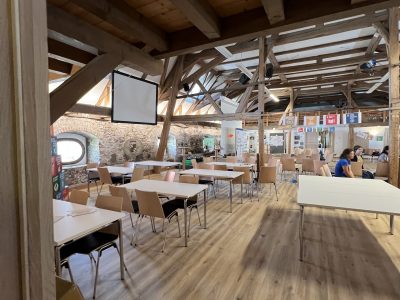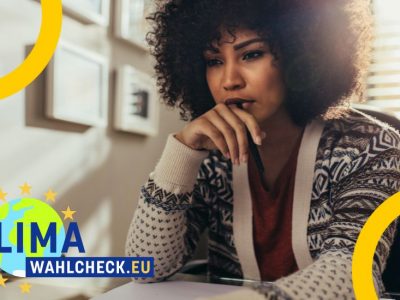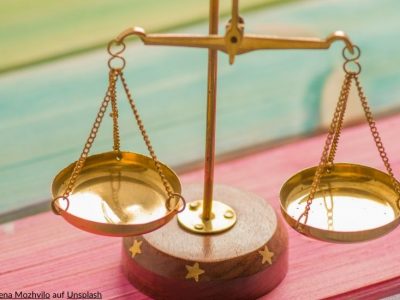When wrong is called right,
it is our duty to resist
In 2021, under the motto “Corporate Climate Action”, Protect the Planet formed a pro-active alliance of business people. The entrepreneurs of this group demonstrate that they too demand adherence to the 1.5 target and are even prepared to take to the streets with concrete action.
It is clear to us that our economy and ecology must go hand-in-hand and that good business can thrive without destroying the planet or endangering the climate. In late October 2021 the alliance took its first action at the Neurath coal-fired power plant and in Lützerath, to protest against the devastating effects of climate change and stand in solidarity with the few remaining local inhabitants.
The devastating effects of climate change caused by German companies is particularly evident in the Rhenish coal-mining area, where the energy giant RWE operates the Garzweiler II lignite coal mine. The company wanted to extend the open-cast mine further in 2020 and demolish several more villages in the process.
This is nothing new. Ever since 1945, about 300 villages have been bulldozed in favour of lignite mining and over 120,000 people have been relocated as a result. But resistance to this is nothing new either. People have always fought for the right to remain in their own homes.
Like them, local farmer Eckardt Heukamp in the village of Lützerath, which was threatened with demolition, also fought to keep his home. His farm had been in family ownership for generations and was officially recognised as an historic place worthy of preservation. Loess soil found all around the farm would be irreversibly destroyed if RWE went ahead and demolished Lützerath. So Eckardt Heukamp took his case against appropriation of his farm and the impending demolition of Lützerath to court. While the current German government (so-called “traffic-light coalition”) voted to retain the remaining five villages near Garzweiler which were threatened with demolition and lamely decided the exit from coal would “ideally” happen in 2030, the future of Lützerath depended on the ruling of the court – even though it is clear that Germany can only achieve its 1.5 target if Lützerath stays. If we continue to burn lignite, Germany will not be able to meet its climate obligations.
On 28 March 2022, the Higher Administrative Court of Münster, with reference to a lack of basic climate-policy legislation on the part of the government, ruled that the order to take possession of Eckardt Heukamp’s property was lawful. Shortly afterwards, the farmer sold his farm to RWE.
Nevertheless, people’s initiatives like “Alle Dörfer bleiben” (“All villages stay”) remained and other tenants in Lützerath and numerous activists continued to live on a campsite, in tree houses or in occupied buildings marked for demolition in Lützerath and kept resisting the expansion plans of RWE.
The proactive alliance “Corporate Climate Action” – initiated by Protect the Planet founder Dorothea Sick-Thies and film maker Carl-A. Fechner – stood up for the people who wanted to protect Lützerath. Using the slogan “When wrong is called right, it is our duty to resist” they protested in late October 2021 in front of the Neurath power plant near Lützerath – Germany’s biggestCO2 emitter and the second-biggest in Europe. The entrepreneurs of the action group also visited Eckardt Heukamp on his farm just a few hundred metres away from the coal mine. They spoke with him about the pressure of the threatened evacuation, the injustice of the planned expansion and the hope derived from great support and solidarity. At the same time, “Corporate Climate Action” assured Eckardt Heukamp that the group would support him financially in his court case against RWE. In addition, a source of green-power supply was secured for the campsite and financial support was provided for the campaign work of “Alle Dörfer bleiben”.
Coal mining and the demolition of villages is a commercial industry that is detrimental to the climate and has no future. The initiative of the Corporate Climate Action group made that very clear. The members of this group are leading the way by acting in their own businesses with integrity and demonstrating the power of social-ecological transformation.
Videos on the action

Mit dem Laden des Videos akzeptieren Sie die Datenschutzerklärung von YouTube.
Mehr erfahren

Mit dem Laden des Videos akzeptieren Sie die Datenschutzerklärung von YouTube.
Mehr erfahren
The entrepreneurs
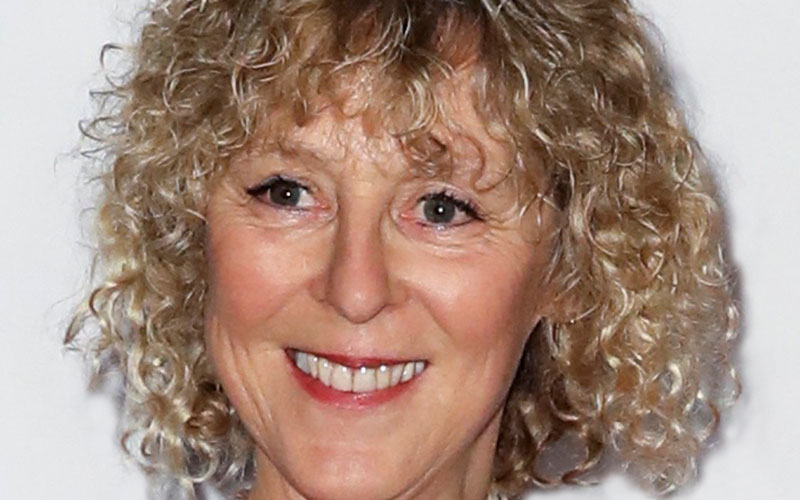
DOROTHEA SICK-THIES
(Protect the Planet)
Dorothea Sick-Thies is active in business as an impact investor, co-owner of SICK-AG and venture philanthropist.
We must continue to expand our capacity for renewables, appropriately tax CO₂ emissions at around € 160/t and incentivise green technologies. The solutions are obvious and already open to us. As the mother of two daughters, it is my natural instinct to do everything humanly possible to leave our children and grandchildren a future on a liveable planet.”
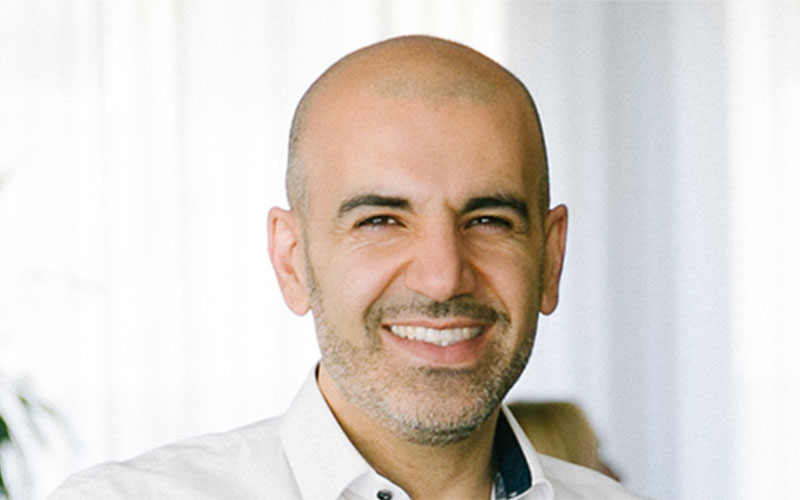
AMIR ROUGHANI
(Vispiron): Amir Roughani campaigns for climate protection as a serial entrepreneur and supports various social projects.
“As the founder of my company, I have built a successful enterprise from 0 to 500 employees and received several awards for my work, but this success is worth nothing to me if I cannot leave behind a liveable planet for my children and grandchildren. This is why I am taking responsibility for them and campaigning for resolute implementation of all possible measures to achieve the 1.5 degree target. This will enable us to preserve our natural resources and our ongoing prosperity.”
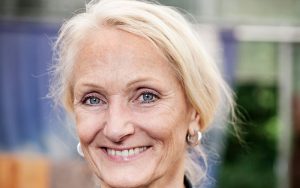
EVA DANNEBERG
Eva Danneberg (Werkhaus):
“We began in 1992 as eco-pioneers and are growing every day in our determination to work in a climate-friendly and environmentally sound way. As a small company, we wish that large conglomerates and big businesses would finally show the courage to implement innovative and sustainable concepts too – for a clean conscience, for our planet and for the future of our grandchildren. Just do it – and act now!”
(Photo: Dan Hannen)
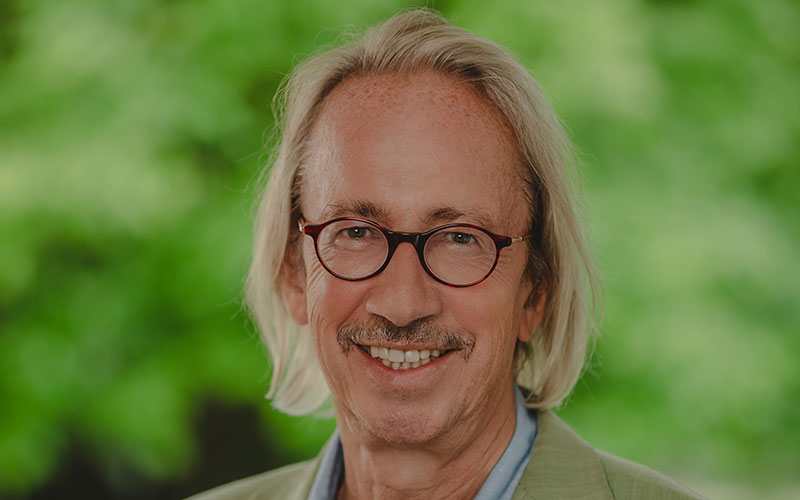
CARL-A. FECHNER
Carl-A. Fechner (Producer & Managing Director of fechnerMEDIA GmbH):
“The more I look around beyond our own borders, the more I learn and the older I become, the more it becomes clear to me that our earth, our planet – we – need a global revolution.
By this I mean a revolution where the fight to avert a climate catastrophe is the central focus – a fight that is carried by non-violence and love.
Some 800,000,000 people are acutely at risk of dying from hunger in their daily struggle to survive. Their suffering is directly linked to our commercial activity and resultant climate catastrophe. That is patently unjust. I would like to help you and us find the inner strength to solve the problems and challenges of our time together. We need the kind of strength that can move mountains.
Once we have found it, every active change begins: solidarity, empathy and the willingness to protest unlawful action and injustice.
The time for ducking away from the truth is over. The imperatives of our age mean we have to commit to an ecological revolution.”
(Amongst other things, Carl Fechner is an author and the director of the film “Die 4. Revolution” (“The 4th Revolution”), which has already been translated into 29 languages and reached over 15 million people worldwide.)
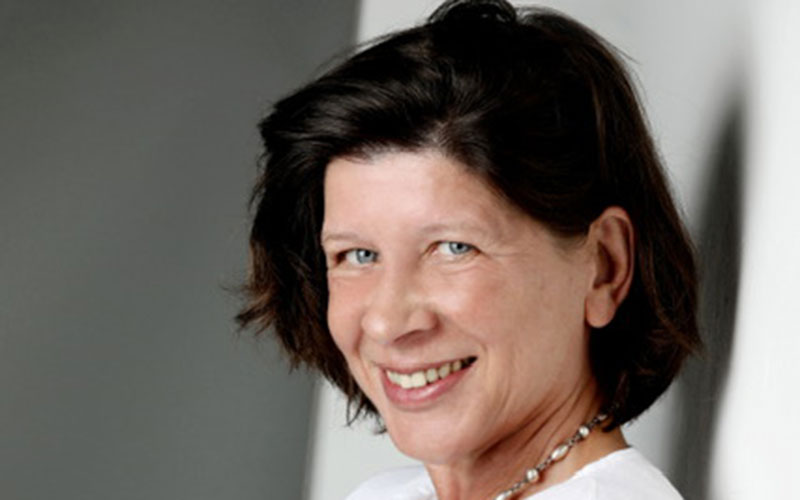
PETRA STOCKAMP
Petra Stockamp (Labs Network Industrie 4.0. e.V., lawyer and Member of the Board):
“The government must make its messages honest, sincere and clear. As far as the climate crisis is concerned, we are on the brink of disaster. Companies keep making technological advances, with digital transformation and decarbonisation in full swing. Progress must always serve the needs of the people.
The role of politicians is to strategically shape the social, commercial and community life, exercising sound foresight and due caution as the key levers to success. Governments always have short to medium-term goals, but what is needed is a longer term strategy.
Society must be made aware of its responsibility and also accept it. This will not work without guidelines. The far-reaching ban on plastic bags is evidence that they work. And do we miss those bags? No! On the contrary, on the odd occasion when we do come across them, we choose not to take them.
Our business owners must continue working as catalysts and ambassadors for change, and their calls need to become even louder than before.
More public discussion between business owners and decision-makers in government is needed.
Talk shows like Lanz or Illner etc are well and good, but listeners and viewers are not enough. What we need are forums for a direct exchange of ideas to act as barometers and monitors of specific government action and challenge them to do more. In short we need more hands-on participation.”
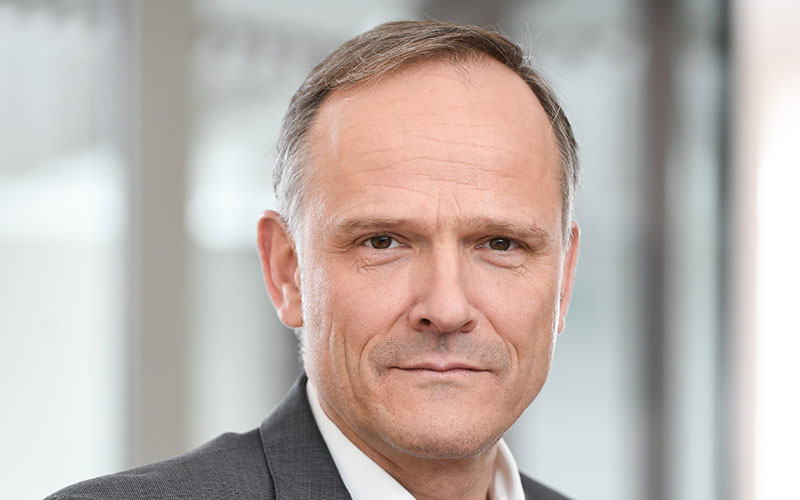
CLAAS HELMKE
Claas Helmke (Wermuth Asset Management GmbH & founder and Board Member of GermanZero e.V.): “A business model focused on endless growth in a finite world can only work at the cost of others. A market model that deliberately turns a blind eye to the destruction of natural resources is antisocial. A world where a small number of people live at the cost of the majority and future generations is inhumane. We urgently need an ecologically-sound, circular economy and introduction of the polluter-pays principle (in relation to the destruction of natural resources caused by CO2 emissions) and a globally balanced and sustainable lifestyle (through revival of ethical/moral integrity in business). This is what we stand for. It is why we only invest in young companies who share these principles and can help reduce our CO2 emissions.”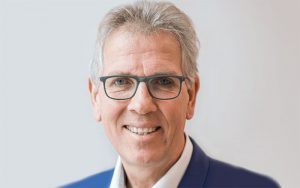
MICHAEL RADAU
Michael Radau (SuperBioMarkt):
“We need our economy to switch to an ecological-social market economy. Right now. That is the only way we can possibly avoid the tipping points of climate change and loss of biodiversity that we are currently facing. We need incentives for climate-friendly action and tax incentives to encourage companies to turn into ecologically sound enterprises. This applies in particular to the agricultural sector and the foodstuffs industry. More and more companies are demonstrating that this is possible and setting positive examples for the future.”
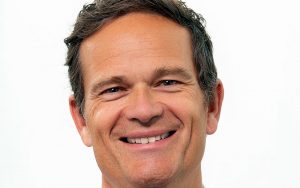
MICHAEL HETZER
Michael Hetzer (elobau):
“For us to be able to reach our 1.5° target, every company must act now to set their business on a climate-neutral course.”








